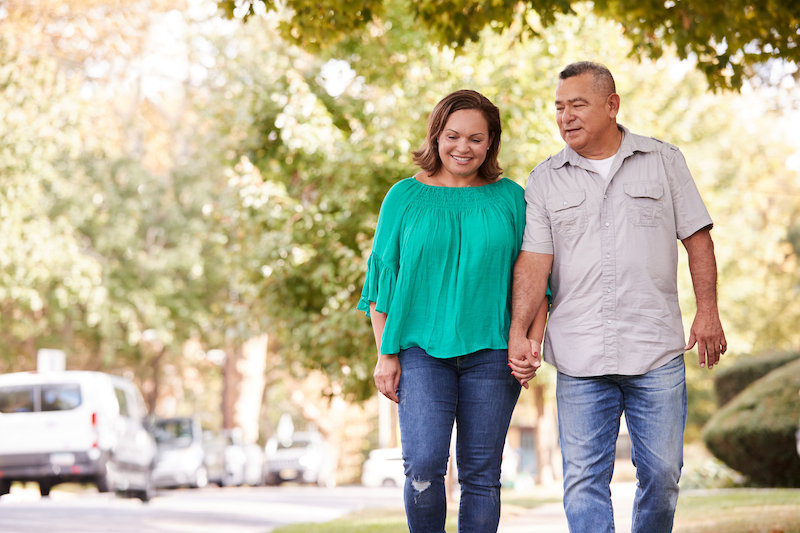Weight Loss Surgery Frequently Asked Questions
- What can I expect during the first days of weight loss surgery recovery?
- How soon can I resume normal activities after weight loss surgery?
- Will I feel pain after weight loss surgery?
- What about bathing and incision care after weight loss surgery?
- Will I need special medications after weight loss surgery?
- What if I experience digestive problems after weight loss surgery?
- How long after bariatric surgery will I notice weight loss?
- What can I do to prevent complications and help my body recover after weight loss surgery?
- What are signs of potential complications after weight loss surgery?
- What are some common complications after bariatric surgery, and how do I avoid or treat them?
- When can I get pregnant after surgery?
- What do I do if I am feeling nauseous or vomiting?
- What do I do about constipation?
- What do I do about diarrhea?
- What do I do about gas?
- Why do I need to drink so much water?
- Why do I sometimes feel tightness in my chest area after eating?
- What do I do if I get something stuck in the pouch?
What can I expect during the first days of weight loss surgery recovery?
- You should be up and walking shortly after surgery.
- You might experience:
- Drowsiness
- Metallic taste
- Very dry mouth

Will I feel pain after weight loss surgery?
During initial weight loss surgery recovery, is normal to experience mild to moderate:
- Discomfort (5 or less on a scale of 1 to 10).
- Please let your nurse know if you experience pain that is not alleviated by your prescribed pain medication
- If pain is experienced after you are discharged from the surgery center, please call us at all 806-677-7952 and have your pharmacy number available.
- Discomfort is most often experienced at the incision site, around the left shoulder, and after drinking fluids.
- You may continue to have some mild abdominal pain for up to 4 weeks after surgery, especially if twisting or bending certain ways.
How soon can I resume normal activities after weight loss surgery?
- Return to work when ready (usually 1 week after surgery).
- No lifting anything over 10 lbs for 3 weeks after surgery.
- No strenuous exercise for 3 weeks after surgery. Work up to walking 30 minutes a day.
- When back at work, be sure to get up every hour and walk to help prevent blood clots for the first 4 weeks.
- You may resume driving as soon as you feel comfortable – As long as you are not taking any pain medications.
- No baths, hot tubs, or swimming for 7 days after surgery.
What about bathing and incision care after weight loss surgery?
- While showering, gently cleanse your incisions with antibacterial soap, avoiding any vigorous scrubbing or attempts to remove drainage or scabs. Simply allow warm, soapy water to flow over the incisions.
- Refrain from using alcohol or peroxide for cleaning the incisions.
Will I need special medications after weight loss surgery?
- Your surgeon will instruct you on resuming your regular medications after surgery.
- You will be required to take acid blocker daily for 6 weeks after surgery to protect your pouch and reduce stricture or narrowing of the pouch outlet.
What if I experience digestive problems after weight loss surgery?
- Productive burp or belching is caused by eating too fast, not chewing well, or taking bites that are too big.
- If you do not chew your food well or food becomes stuck, you will experience sliming or frothing, which is excessive saliva production in the mouth.
How long after bariatric surgery will I notice weight loss?
- Do not get discouraged by not seeing weight loss on scale weekly, you will experience weight loss but also as your weight plateaus, you will be losing inches.
- Weigh weekly and record.
What can I do to prevent complications and help my body recover after weight loss surgery?
- Stay hydrated
- Take your supplements
- Make healthy food choices! Protein first – protein promotes healing and weight loss, minimum of 60 GRAMS/day
- Exercise
- Try to differentiate head hunger from real
- Change is stressful.
- Learn new coping strategies that don’t involve eating.
- Change your eating habits to be successful.

- When you feel full stop immediately, put your food aside and save it for another meal. If you try to force it down you may stretch your pouch or vomit. Do not eat more than 1 cup of food per meal.
- Remember do not drink with your meals.
- Use a medicine cup to learn how to sip versus gulp.
- You may want to use a teaspoon to keep you from taking too large of bites.
- Read nutrition labels, stay away from high fats, sugars and sugar alcohols.
- If food gets stuck, get up and walk and try room temperature pineapple juice in small amounts (1 ounce) or warm but not hot water. Never attempt to wash food down; this will only make the situation worse.
- Do not drink out of straws in the beginning. This may cause air bubbles that can cause gas pain or discomfort.
What are signs of potential complications after weight loss surgery?
If you experience any of these symptoms, please contact your surgeon immediately. They could be signs of serious complications following bariatric surgery.
- Presence of bright red blood in vomit or stools
- Experiencing excessive chest pain or noticing pain/swelling in the legs
- Difficulty in breathing or increased shortness of breath
- Persistent vomiting or diarrhea lasting beyond 24 hours, or enduring abdominal pain for over 4 hours
- Inability to retain fluids and absence of urination
- No bowel movements, despite using Colace or Milk of Magnesia
- Unmanageable or unusually severe pain around incisions
- Observing increasing redness or discharge with a foul odor from incisions
- Developing a fever exceeding 101 degrees Fahrenheit
What are some common complications after bariatric surgery, and how do I avoid or treat them?
Dumping Syndrome
Occasionally, individuals who have undergone Gastric Sleeve surgery may encounter dumping syndrome. Symptoms of dumping syndrome can include palpitations or a racing heart, perspiration and clamminess, abdominal discomfort or cramps, weakness, fatigue, dizziness, and occasionally diarrhea. Although not life-threatening, dumping syndrome is highly unpleasant, often leading individuals to avoid the triggering food in the future. This condition is commonly linked to the consumption of sugary, fatty, overly rich, or excessively carbohydrate-laden meals. The manifestation of dumping syndrome varies from person to person, and one may experience any combination of the aforementioned symptoms.
Food Intolerances
Numerous patients encounter food intolerances, with common culprits including red meat, milk, and high-fiber foods. Given the individualized nature of these intolerances, our team can assist in identifying suitable food options to alleviate symptoms. Maintaining a food journal documenting tolerated and intolerated foods is advisable. Importantly, many food intolerances are transient, permitting individuals to potentially reintroduce previously problematic foods after a few months.
Lactose Intolerance
Lactose, commonly known as “milk sugar,” is a specific type of sugar present in dairy products. Its digestion necessitates a particular enzyme primarily located in the bypassed intestinal segment. Consequently, numerous patients who previously tolerated milk without issue may experience abdominal cramps and flatulence following Gastric Bypass surgery. Fortunately, such symptoms can often be managed with Lactaid, an over-the-counter enzyme supplement. Additionally, bowel adaptation typically occurs over time, leading to reduced discomfort for most patients around six months post-surgery.
Hair Loss
Around three to five months post-surgery, many patients experience an uptick in hair loss, which can be quite significant for some. They report finding clumps of hair in their brushes and covering the shower floor. This phenomenon is a result of the body’s reaction to sudden calorie and protein deficiency immediately following surgery. Essentially, the body prioritizes essential functions over non-essential ones, including hair maintenance, until adequate nutrition resumes, which may take a few months to manifest visibly. Interestingly, this doesn’t imply any damage to the hair follicles; rather, they enter a dormant phase, likely regenerating hair concurrently with the observed loss. It’s uncommon for patients to have thinner hair one year post-surgery compared to pre-surgery levels. In fact, by 18 months post-surgery, most patients experience fuller and healthier hair due to significant improvements in the body’s hormone balance.
Emotional Volatility
Most patients experience some form of “buyer’s remorse”. This generally occurs within the first 1-2 months after surgery. A depressed mood may also develop due to the loss of the previous relationship with food. The good news is that this is not unusual and should resolve within 3 months after weight loss surgery. If you continue to feel emotionally volatile (tearful or irritable) or depressed, then please see your physician.
Relationship changes
Every relationship in which the patient participates will change substantially as the dramatic weight loss occurs. This change will affect all relationships. The drastic changes put stress on relationships as the patient changes physically and emotionally and it is sometimes necessary to seek outside counseling.
When can I get pregnant after surgery?
It’s highly advisable to wait for a minimum of 18 months post-surgery before attempting to conceive. By this time, your body is generally more stable in terms of weight and nutrition. Additionally, it’s important to note that weight loss often correlates with increased fertility, so taking additional precautions is essential.
What do I do about constipation?
Constipation may arise due to pain medication use or inadequate hydration. Should constipation become problematic, consider utilizing 30cc (6 teaspoons) of Milk of Magnesia or over-the-counter Miralax (follow dosage instructions). Increasing fluid intake is also recommended. Additionally, insoluble fiber supplements like Metamucil, Benefiber, or Fiber-con can provide relief; begin with approximately ¼ to ½ the recommended dosage. Consuming half a cup of warm prune juice can also alleviate constipation. If constipation persists beyond 2-3 days, contact your doctor’s office for further guidance.
How should I proceed if I’m experiencing vomiting or nausea?
Nausea is common during the initial weeks post-surgery. Monitor your eating habits closely. Are you consuming excessive amounts or eating too quickly, particularly foods rich in sugar or fat? Additionally, consider whether you’re drinking fluids alongside meals. It’s possible you may also be experiencing food intolerances. If you feel nauseous or begin vomiting, wait approximately two hours until symptoms alleviate before resuming a full liquid diet. Should vomiting persist beyond a 24-hour period, contact your doctor promptly.
What do I do about diarrhea?
For the first few weeks after surgery, it is normal to feel cramping or diarrhea. You may take Imodium AD or try some yogurt. However, later on some patients may experience these symptoms due to sugar found in milk products called lactose. If you are lactose intolerant it will cause gas, bloating and diarrhea. Symptoms should be resolved by switching to lactose free products. Call your doctor’s office if the diarrhea persists past 2-3 days.
What do I do about gas?
Gas is frequently experienced during the initial weeks following surgery. To alleviate gas pains, consider using Mylicon Drops, Simethicone (generic), or Gas-X strips.
Why do I need to drink so much water?
Proper hydration is critical during recovery from surgery. When food intake is low, it becomes even more important to drink fluids to meet the needs of your body. Dehydration is one of the most common reasons for rehospitalization. It can cause fatigue, weakness, dizziness, light-headedness, and constipation. Shrinking cells are buoyed by water, which plumps the skin and leaves it clear, healthy and resilient. Water helps rid the body or waste. During weight loss, the body has a lot more waste to get rid of. You should constantly sip on water between meals and aim to drink as much as 64 ounces every day. In the first few weeks after surgery it is difficult to drink a lot of water but you can add plenty of sugar free Popsicles and ice chips.
Why does my chest area feel tight sometimes after eating?
This sensation may arise from eating too quickly, insufficient chewing, taking excessively large bites, or drinking while eating. If you encounter this discomfort, pause your activity, stand up, and walk around. This movement may assist in alleviating the tightness more quickly.
What do I do if I get something stuck in the pouch?
If you get food stuck in the pouch you will feel an intense pressure or tightness in your diaphragm and your mouth will begin to water. This pressure can sometimes be felt in your upper back. You can drink about 1 ounce of pineapple juice to help dislodge the food or you can try walking or standing to see if the food will move through the pouch or come back up. If this doesn’t work, try again in an hour or two. If after the second attempt you are not feeling any relief, call your surgeon. Having had food stuck in the pouch can cause the pouch irritation and inflammation. If you have difficulty tolerating solid foods after this, revert back to full liquids for 48 hours then advance to soft foods for 48 hours before trying solids again. If you are unable to tolerate solid foods after this please notify the office.
Contact Panhandle Weight Loss Center
We hope that these frequently asked questions help you feel more comfortable and prepared for the recovery process after your weight loss surgery. We realize, however, that we can’t possibly anticipate or answer every question patients may have. If you need more information about recovery after bariatric surgery or if you are experiencing any post-surgery complications, please don’t hesitate to contact us.
The surgeons at Panhandle Weight Loss Center have either authored or reviewed and approved this content. Page Updated:
